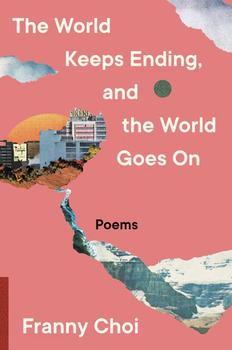Summary | Excerpt | Reviews | Beyond the book | Read-Alikes | Genres & Themes | Author Bio

With exuberance, grit, and sly tenderness, here is a family saga; an origin story; a romance; a narrative of two nations and the people who leave one home to grasp at another.
How many lives fit in a lifetime?
When Hero De Vera arrives in America - haunted by the political upheaval in the Philippines and disowned by her parents - she's already on her third. Her uncle gives her a fresh start in the Bay Area, and he doesn't ask about her past. His younger wife knows enough about the might and secrecy of the De Vera family to keep her head down. But their daughter - the first American-born daughter in the family - can't resist asking Hero about her damaged hands.
An increasingly relevant story told with startling lucidity, humor, and an uncanny ear for the intimacies and shorthand of family ritual, America Is Not the Heart is a sprawling, soulful debut about three generations of women in one family struggling to balance the promise of the American dream and the unshakeable grip of history.
Attempting to distill Elaine Castillo's debut novel America is Not the Heart into a neat synopsis is a little like trying to explain the plots of several books all at the same time. Yes, this is first and foremost a tale of new beginnings in a foreign land. But it is also a document of a nation's political upheaval that spans several decades. America is Not the Heart is a bisexual romance, a story of survival, a celebration of Filipino culture, and more besides. Thankfully Castillo has expertly managed to tie these disparate threads into a cohesive, compelling whole anchored by protagonist Geronima de Vera, a twenty-something-year-old woman escaping a traumatic adolescence in the Philippines...continued
Full Review
 (710 words)
(710 words)
(Reviewed by Dean Muscat).
A large part of protagonist Geronima de Vera's backstory in Elaine Castillo's novel, America is Not the Heart, is entwined with the communist rebellion group, The New People's Army, a real-life collective that continues to forcefully oppose elected Philippine governments.
The New People's Army (NPA) is the armed wing of the Communist Party of the Philippines (CPP), which was founded in 1968 by student activist Jose Maria Sison. The two entities are often referred to under the collective acronym CPP-NPA since from the very start they worked closely together. The group's primary objectives are to establish a new political state led by the working class as well as to expel U.S. influence from the Philippines.
 As a rebellious force, ...
As a rebellious force, ...

If you liked America Is Not the Heart, try these:

by Susan Choi
Published 2025
A novel tracing a father's disappearance across time, nations, and memory, from the author of Trust Exercise.

The World Keeps Ending, and the World Goes On
by Franny Choi
Published 2023
From acclaimed poet Franny Choi comes a poetry collection for the ends of worlds—past, present, and future. Choi's third book features poems about historical and impending apocalypses, alongside musings on our responsibilities to each other and visions for our collective survival.
Poetry is like fish: if it's fresh, it's good; if it's stale, it's bad; and if you're not certain, try it on the ...
Click Here to find out who said this, as well as discovering other famous literary quotes!